Designing Progress is a think tank dedicated to the advancement of ourselves, our communities, our human condition, and our world.
Don't wanna be here? Send us removal request.
Text
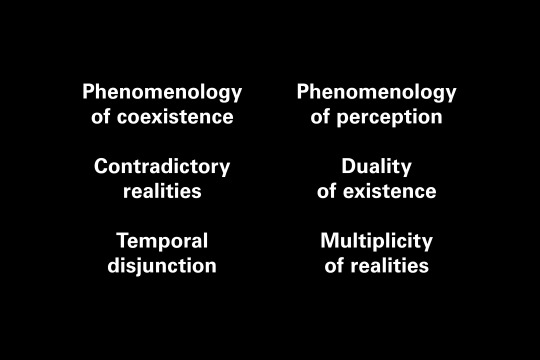
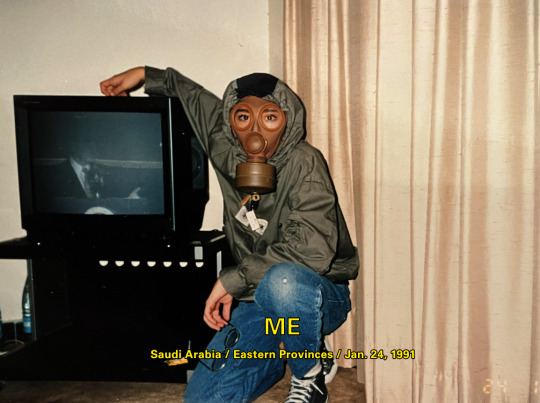


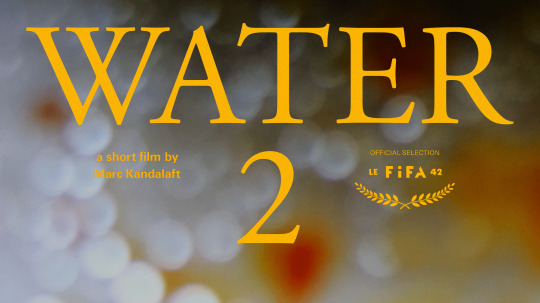









⮕ This is not a political statement, but a philosophical reflection — a search for wisdom on how we can cope with the complexity of realities, time and space.
⮕ The juxtaposition of parallel realities has always been a central theme in my life, influenced by the stark contrasts between my experiences in Lebanon during the Civil War, in Saudi Arabia during the 1991 Gulf War and later in Paris.
I have long been fascinated by the simultaneous occurrence of very different experiences in which destruction and conflict coexist with moments of routine and calm. This phenomenon presents a reality in which one individual navigates the turmoil of war while another partakes of a peaceful meal; both realities exist simultaneously, equally valid and yet profoundly separate, disconnected.
The question ⮕ how can one reconcile such disparate worlds, and how can individuals maintain their everyday existence when they are aware of turmoil elsewhere? This unresolved tension between worlds and the uncertainty of peace interwoven with the violence of conflict — is a theme that has persisted throughout my life and is also reflected in my latest short, WATER 2 → https://marckandalaft.com/WATER-2-1 Phenomenology of coexistence Contradictory realities Temporal disjunction Phenomenology of perception Duality of existence Multiplicity of realities
0 notes
Text
Robert Greene talks about power as psychology, as the ability to persuade, seduce, etc. Invited by Andrew Huberman.
0 notes
Text
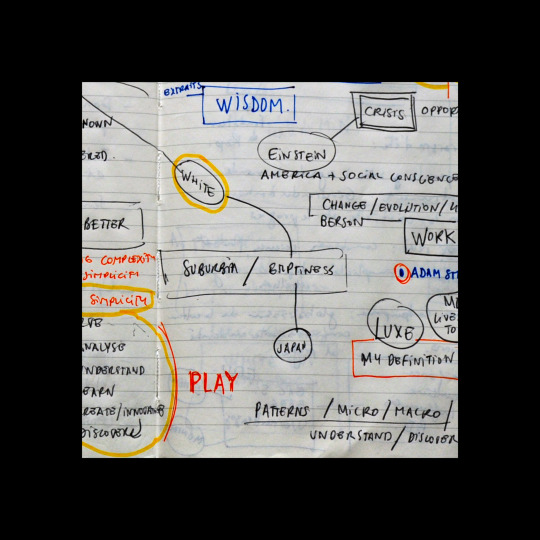
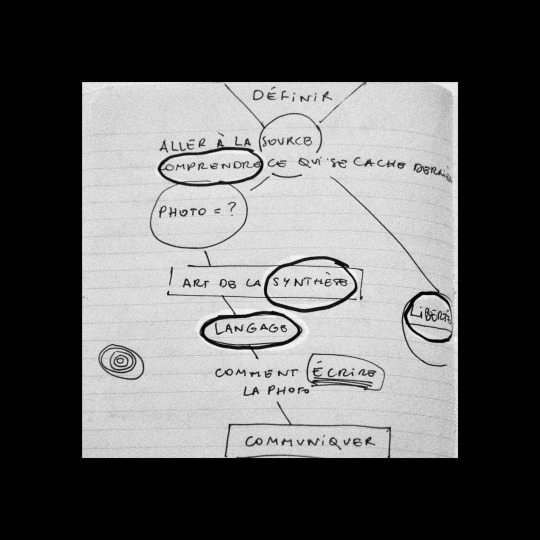
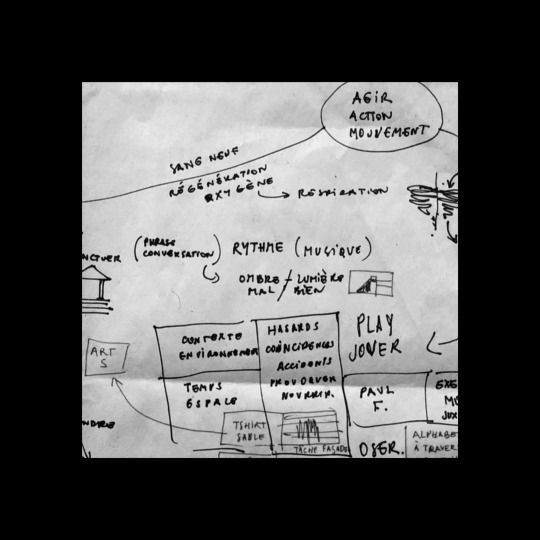
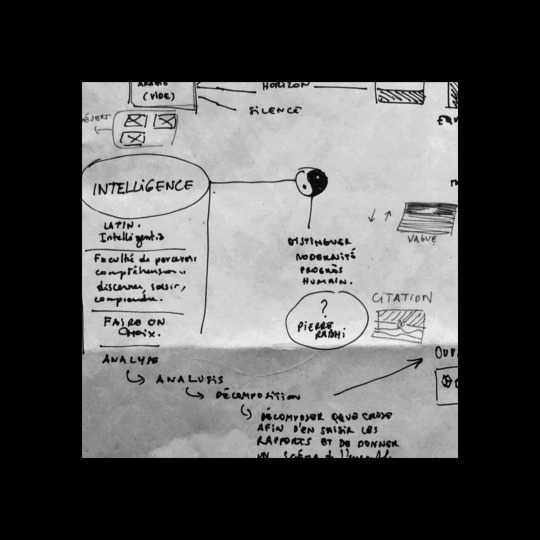
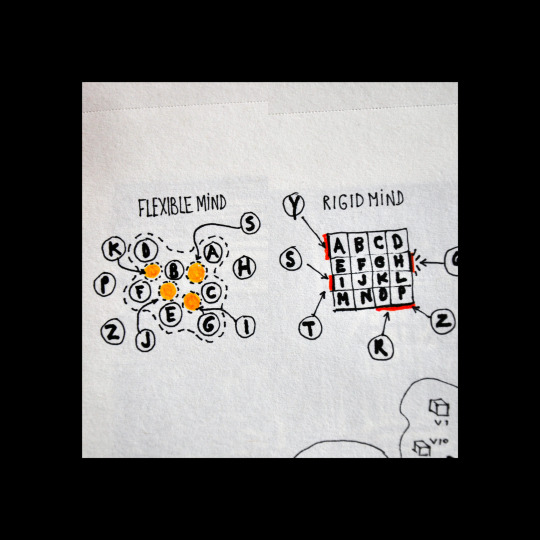
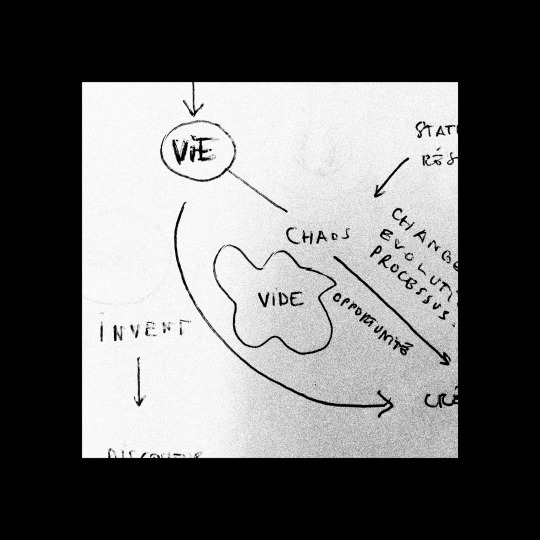

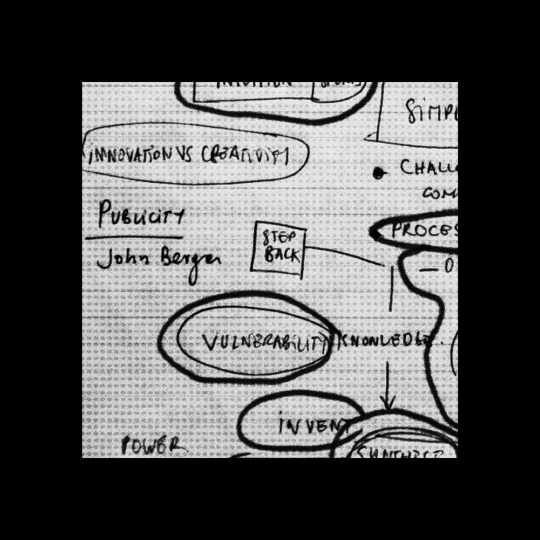
On theoretical anarchism.
How order sometimes keeps us from discoveries, while chaos can lead to groundbreaking ideas.
Paul Feyerabend, for example, described science as essentially anarchistic. Epistemological anarchism is an epistemological theory advocated by P.F. that states that there are no useful and exception-free methodological rules governing the progress of science or the growth of knowledge.
Edward Lorenz, the father of chaos theory, speaks of the two most important ingredients of a brilliant mistake:
1 — Something goes wrong that's far beyond what was previously expected. 2 — New insights arise whose benefits far exceed the costs of the mistake.
Our actions should aim to increase the likelihood of both occurring at the same time.
All mistakes are not created equal. Some have a high cost and offer little learning value, while others cost little and yield deep, valuable insights.
Paul Karl Feyerabend was an Austrian-born philosopher of science best known for his work as a professor of philosophy at the University of California, Berkeley, where he worked for three decades (1958–1989). His major works include Against Method (1975), Science in a Free Society (1978) and Farewell to Reason (1987). Feyerabend became famous for his purportedly anarchistic view of science and his rejection of the existence of universal methodological rules. He was an influential figure in the sociology of scientific knowledge. Asteroid (22356) Feyerabend is named in his honour.
Edward Norton Lorenz was an American mathematician and meteorologist who established the theoretical basis of weather and climate predictability, as well as the basis for computer-aided atmospheric physics and meteorology. His discovery of deterministic chaos "profoundly influenced a wide range of basic sciences and brought about one of the most dramatic changes in mankind's view of nature since Sir Isaac Newton," according to the committee that awarded him the 1991 Kyoto Prize for basic sciences in the field of earth and planetary sciences.
[Images: excerpts from old notebooks from 5-6 years ago].
0 notes
Text


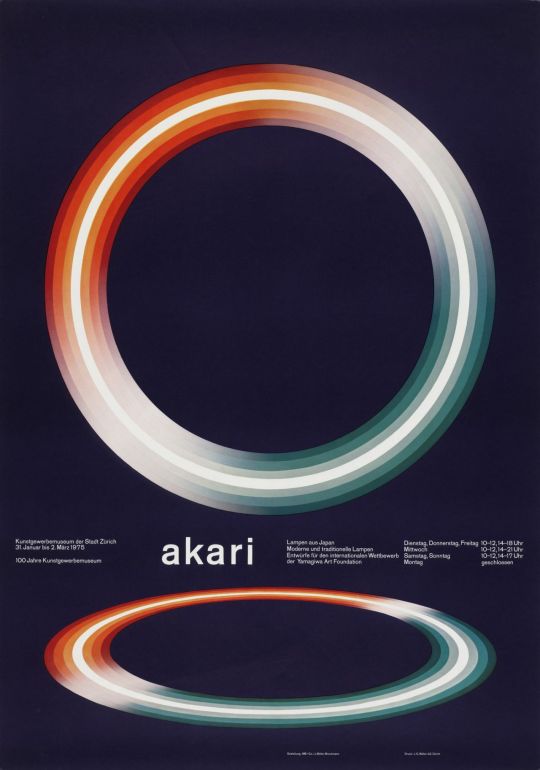




About minimalism.
Minimalism should be replaced by the idea of synthesis. Because it is too often seen as an aesthetic goal. But minimalism is above all the result of a process. A process that leads from complexity to simplicity.
The ability to analyse/understand a large amount of information/concepts so well that we are able to convey it/them with as few words/images as possible.
Design.
1. Campaign design for Art Souterrain by Marc Kandalaft (2016) 2. Design by Josef Müller-Brockmann (1955) 3. Design by Josef Müller-Brockmann (1975) 4. Artwork by Victor Vasarely (70s) 5. Artwork by Victor Vasarely (1937) 6. Design by Kenya Hara (2002) 7. Design by Kenya Hara for Muji (2003)
0 notes
Text

Essay by Vilém Flusser. Astute. Pertinent. Insightful.
"We are becoming ever more conscious of the fact that culture is a design against our natural condition, that each and every artifact is intended to cheat nature around us and within us, and that the term “design” means the very essence of culture (...)" // Vilém Flusser (May 12, 1920 – November 27, 1991) was a Brazilian Czech-born philosopher, writer and journalist. He lived for a long period in São Paulo (where he became a Brazilian citizen) and later in France, and his works are written in many different languages. Flusser's essays are short, provocative and lucid, with a resemblance to the style of journalistic articles. Critics have noted he is less a 'systematic' thinker than a 'dialogic' one, purposefully eclectic and provocative (Cubitt 2004). Read more:
0 notes
Text

About vocabulary
Don't fall into the tricky and comfortable inclination to use the words you read-hear daily.
Words are sounds.
And like any other sounds, once they become too repetitious and familiar we stop detecting them.
To avoid converting your messages into that monotonous sound of the AC in your bedroom, simply take one more minute and look among the synonyms of the word(s) you impulsively use.
What might happen next:
Learn new words or rediscover some you thought you knew.
Realize the synonym is more accurate.
Start using more words = more means of expression.
Teach your brain to detect a wider range of subtleties between words. Words were not invented simply for the pleasure of adding complexity.
Increase your chances of attracting people's attention because they won't feel-think "oh yeah that word/idea, again..." and skip you.
Develop a more personal style of communication. And that's one of the most important aspects of identity and branding.
0 notes
Text
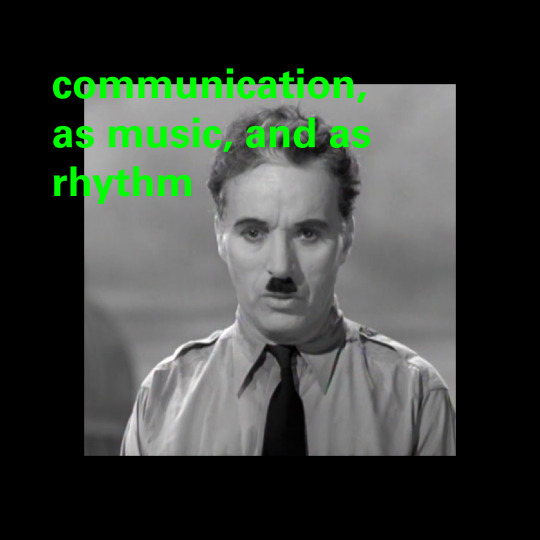
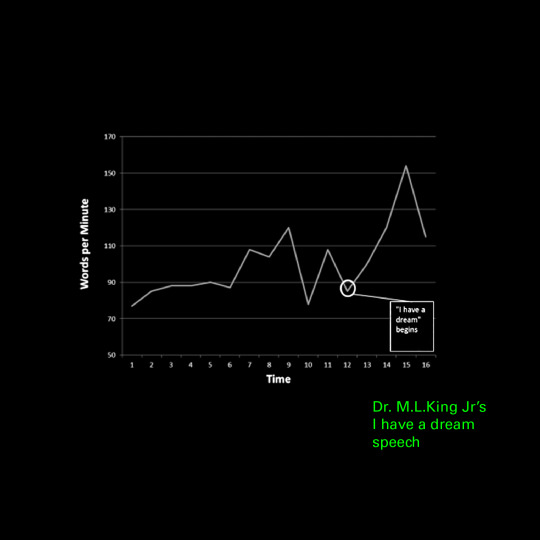


Communication as Music
Think of communication as rhythm, whether designing a campaign, a lecture, a website, a social media feed, or a book. What if we thought of it the same way we think of music. Music is captivating thanks to its motion, its repeating elements, its variations, its climactic moments, etc. I Have a Dream speech by Martin Luther King Jr: https://lnkd.in/etENpbjE Beethoven, Symphony 5, 1st movement: https://lnkd.in/eSH-9b_8 Charlie Chaplin - Final speech from The Great Dictator: https://lnkd.in/eBmPxjmw
2 notes
·
View notes
Text
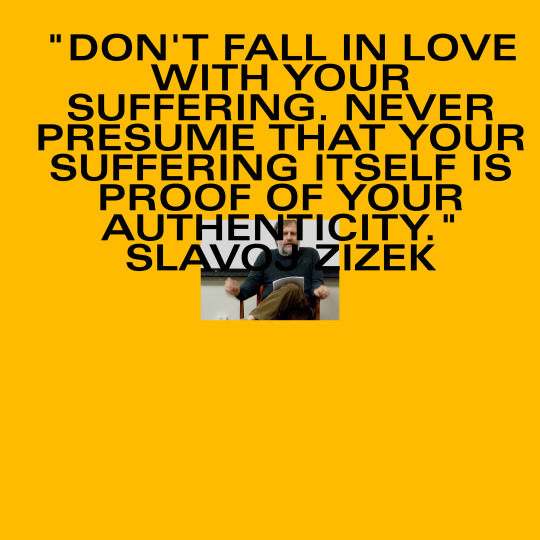
Don't fall in love with your suffering.
The concept of jouissance came from Lacan’s reworking of Freud’s notion of ‘beyond the pleasure principle’. Freud called this beyond the pleasure principle, the ‘death drive’ (Freud, [1920] 1984 ). He developed this aspect of his theory after many years of noticing that his patients would compulsively repeat painful or traumatic (but familiar) experiences. He proposed that the human subject is not entirely pleasure seeking and pain avoidant and that the death drive can be understood as a ‘pleasure beyond pleasure’, a pleasure in the negative; a self-destructive drive (Freud, [1920] 1984 ). In other words, human subjects repeat painful experiences in their life, even though their intention is not to do so. Yet this form of suffering also brings with it a kind of enjoyment or satisfaction, a fulfilment of one’s ‘destiny’, in the sense of fulfilling the conditions that one’s history has dictated, of fulfilling the conditions of one’s life (Lacan, 1992a). Lacan called this form of suffering jouissance (Lacan, 1992b). More: https://www.lacan.com/zizshadowplay.html
0 notes
Photo
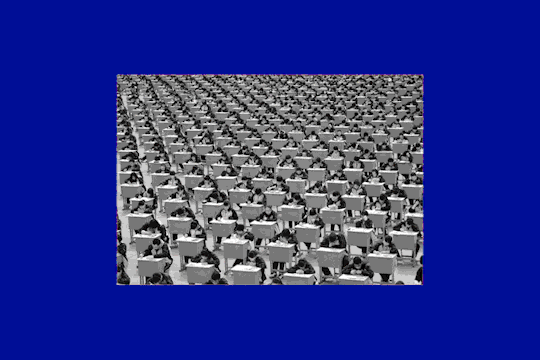
Designing Progress — What Why How
Designing Progress is dedicated to the advancement of ourselves, our communities, our human condition, and our world.
Modernity can be - but is not always - progress. How to make - and take - better decisions for our world, and ultimately for our children? Information is key. Informed people make better humans, better parents, and better leaders.
Designing Progress wants to offer diverse and atypical points of view by sharing progressive research, ideas, and innovations about philosophy, medicine, anthropology, education, design, psychology, sociology, technology, and the synergies between each of these fields, precisely because transdisciplinarity is a powerful fuel for progressive initiatives and mindsets.
[In the form of an online platform for now, its goal is to become with time a Media, or a Think Tank]
0 notes
Photo
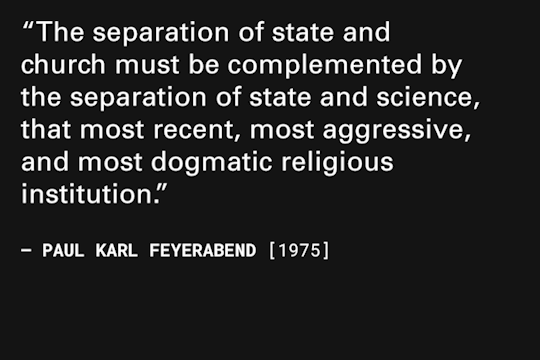
Paul Feyerabend’s Philosophy
Feyerabend was heavily influenced by the counter-culture movements of the 1960s. The central themes of his philosophy of science can be found in his seminal work Against Method. (The book was originally intended to be published as a dialogue with his friend and colleague Lakatos but the latter died before the project was finished). I will try to summarize Feyerabend’s view of science in a few points;
1.
On the issue of falsifiability, Feyerabend argues (in common with Kuhn and Lakatos) that no theory is ever consistent with all the relevant facts. Like Lakatos, he sees the use of ad-hoc postulates to save the dominant paradigm as an essential to the progress of science (see last post). However, Feyerabend goes much further than Lakatos; taking examples from the history of science, he claims that scientists frequently depart completely from the scientific method when they use ad-hoc ideas to explain observations that are only later justified by theory. To Feyerabend, ad-hoc hypotheses play a central role; they temporarily make a new theory compatible with facts until the theory to be defended can be supported by other theories.
2.
On the issue of paradigm shifts (or moving from a regressive research programme to a progressive one, as Lakatos would say), Feyerabend emphasises Kuhn’s idea that the reigning paradigm heavily influences interpretation of observed phenomena. However, he adds to this by suggesting that in the paradigm model, the reigning paradigm would also have a stifling influence on the incoming theory; instead of being dictated by agreement with observation alone, the new theory must also agree with the old in almost every instance.
3.
Epistemological anarchism; putting the two points above together, Feyerabend concludes that it is impossible to view the progress of science in terms of one set of methodological rules that is always used by scientists; such a ”scientific method’ would in fact limit the activities of scientists and restrict scientific progress. Instead of operating according to universal and fixed rules, Feyerabend suggests that science often progresses by ad-hoc postulates that break the rules; this ‘anything goes’ view is formally known as epistemological anarchism.
4.
Science and Society: the doctrine of epistemological anarchism is considered Feyerabend’s major contribution, However, he also had a major point to make about science and society. Starting from the view that a universal scientific method does not exist, Feyerabend goes on to argue that science therefore does not deserve its privileged status in western society. Since scientific points of view do not arise from using a universal method which guarantees high-quality conclusions, there is no justification for valuing scientific claims over claims by other ideologies like religion. Indeed, he was quite indignant about the condescending attitudes of many scientists towards alternative traditions such as astrology and complementary medicine. In Feyerabend’s view, science can be a repressing ideology in society instead of a liberating movement; he thought that a pluralistic society should be protected from being influenced too much by science, just as it is protected from other ideologies.
This pluralistic view, that science does not have a monopoly on truth and its authoritarian status in society should be questioned, went on to become a major tenet of the modern discipline of Science and Technology Studies.
Criticisms
1.
Feyerabend’s view of science is considered radical but interesting by many philosophers of science. However, one obvious criticism is that the comparison of science with cultural traditions such as religion doesn’t seem to stand up; faced with experimental evidence to the contrary, scientists do, eventually, change their story – unlike religion. No scientific theory that is in conflict with observation survives over time.
2.
A criticism from historians of science is that Feyerabend often backs his thesis by choosing the science of Galileo; time and again, Galileo is portrayed as an example of a scientist in rebellion against the science of the day. The problem with this example is that it can be argued that what we now consider the scientific method was developed after Galileo, not before; the invention of instruments such as the telescope and the microscope led to the evolution of the sophisticated method of hypothesis and experiment we call the scientific method today. Hence the Galileo-as-rebel-against-the science-of-the-day narrative is questionable.
3.
A general criticism from scientists is that an extraordinary thesis requires extraordinary evidence. Instead, Feyerabend’s thesis is based on case studies from the history of science that are debatable (see above, and last post), despite his meticulous research. Indeed, Feyerabend is sometimes accused of either misunderstanding or misrepresenting science in his examples. [For example, Feyerabend claims that the Newtonian view of gravitational acceleration was rebellious because it was in conflict with that of Galileo; most physicists consider this argument to be dead wrong. Newtonian mechanics deals with gravitational acceleration in a far more general way than Galileo, but it reduces to the Galilean case for an object is close to the earth’s surface; hence Newton is not in conflict with Galileo]. This example is fairly typical and raises concerns. Philosophers infer general conclusions from isolated case studies in the history of science; this is not ideal and it’s even more problematic if the case studies used are questionable.
4.
On the other hand, Feyerabend’s idea of scientific imperialism is considered very important indeed and led to many studies that suggest that the use of science in society has not always beneficial, including studies that show that claims of scientific legitimacy were sometimes used by the state to introduce unpopular and unnecessary measures on populations... more on this later.
5 notes
·
View notes
Photo

Le monde bouleversé par Boris Cyrulnik
Boris Cyrulnik dialogue avec Patrick Viveret (philosophe, essayiste), Jean-Paul Delevoye (ancien médiateur de la République et ancien président du Conseil économique et social), Youssef Courbage (démographe, sociologue), Philippe Brenot (psychiatre et anthropologue). Animé par : Gérard Paquet (président de l’association Planète Emergences) On dit généralement que le monde a changé, mais c’est beaucoup plus que ça : il est bouleversé ! Sous les effets cumulés de l’évolution des techniques et de la révolution de la mondialisation, c’est une véritable métamorphose qui est à l’œuvre. Un défi à notre humanité qui nous impose d’inventer de nouvelles manières d’être ensemble. Institutions, pensée, environnement, rapports hommes/femmes… Comment s’adapter à ce monde qui se transforme ?
VIDEO : https://www.youtube.com/watch?v=Wv8PvC67vJ4 Captation et montage : François Mouren-Provensal
0 notes
Text
youtube
Le monde bouleversé par Boris Cyrulnik
0 notes
Photo
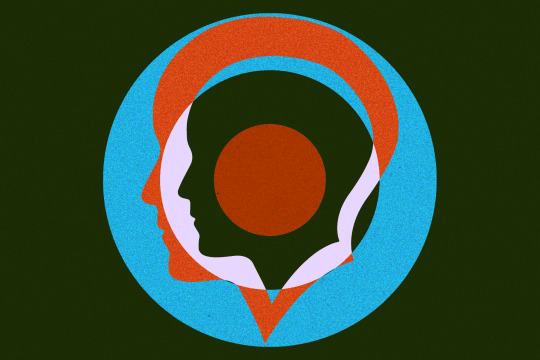
Researchers identify a new personality construct that describes the tendency to see oneself as a victim
A new personality construct has been defined that describes people who persistently see themselves as victims within interpersonal conflicts. The research was published in Personality and Individual Differences.
Study authors Rahav Gabay and team describe how the social world is satiated with interpersonal transgressions that are often unpleasant and seemingly unwarranted, such as being interrupted when speaking. While some people can easily brush off these moments of hurt, others tend to ruminate over them and persistently paint themselves as a victim. The authors present this feeling of being the victim as a novel personality construct that influences how people make sense of the world around them.
The researchers call it the Tendency for Interpersonal Victimhood (TIV), which they define as “an ongoing feeling that the self is a victim, which is generalized across many kinds of relationships.”
Through a series of eight studies among Israeli adults, Gabay and associates sought to test the validity of the construct of TIV and explore the behavioral, cognitive, and emotional consequences of such a personality trait.
An initial three studies established the TIV as a consistent and stable trait that involves four dimensions: moral elitism, a lack of empathy, the need for recognition, and rumination. A follow-up study further found that this tendency for victimhood is linked to anxious attachment — an attachment style characterized by feeling insecure in one’s relationships — suggesting that the personality trait may be rooted in early relationships with caregivers.
Next, two studies offered insight into the cognitive profile of those with TIV. The studies had participants consider scenarios that involved another person treating them unpleasantly — either by having subjects read a vignette describing a partner giving them poor feedback (Study 3) or by having subjects play a game that ended with their opponent taking a larger share of the winnings (Study 4). Interestingly, the two studies found that those who scored higher on the measure of TIV were more likely to desire revenge against the person who wronged them.
In Study 4, this desire for revenge also translated into behavior — those high in TIV were more likely to remove money from their opponent when given the chance, despite being told that this decision wouldn’t increase their own winnings. Participants high in TIV also reported experiencing more intense negative emotions and a higher entitlement to immoral behavior. Mediation analysis offered insight into how this revenge process unfolds. “The higher participants’ TIV, the more they experienced negative emotions and felt entitled to behave immorally. However, only the experience of negative emotions predicted behavioral revenge,” the authors report.
Gabay and colleagues express that their studies indicate that the Tendency for Interpersonal Victimhood is a stable personality trait that is linked to particular behavioral, cognitive, and emotional characteristics. “Deeply rooted in the relations with primary caregivers,” the researchers describe, “this tendency affects how individuals feel, think, and behave in what they perceive as hurtful situations throughout their lives.”
The researchers suggest that TIV as a construct offers a framework for understanding how a person’s interpretation of social transgressions can inform feelings of victimhood and lead to revenge behaviors. These insights could inform therapeutic practices for treating such cognitive biases.
The authors suggest that it would be particularly interesting for future studies to explore what happens when people high in TIV are in positions of power. The researchers wonder whether leaders with this persistent tendency to see themselves as a victim might feel more inclined to behave “in a vindictive way.”
The study, “The Tendency for Interpersonal Victimhood: The Personality Construct and its Consequences”, was authored by Rahav Gabay, Boaz Hameiri, Tammy Rubel-Lifschitz, and Arie Nadler.
0 notes
Text
youtube
Accidental Courtesy: Daryl Davis, Race & America - Festival Trailer
0 notes
Photo
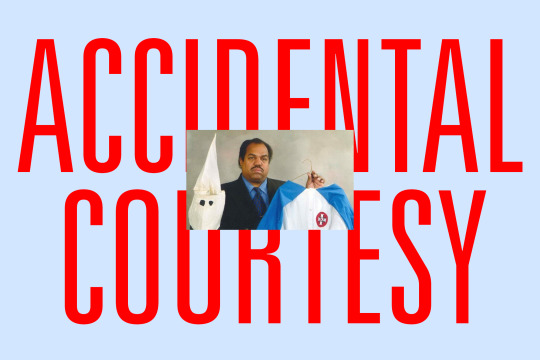
ACCIDENTAL COURTESY Daryl Davis
Musician Daryl Davis has an unusual hobby. He's played all over the world with legends like Chuck Berry and Little Richard, but it's what Daryl does in his free time that sets him apart. Daryl likes to meet and befriend members of the Ku Klux Klan -- something few black men can say. In his travels, he's collected robes and other artifacts from friends who have left the Klan, building a collection piece by piece, story by story, in hopes of eventually opening a "Museum of the Klan."
VIDEO : https://www.youtube.com/watch?v=V7fh5J_mo5E
0 notes
Photo
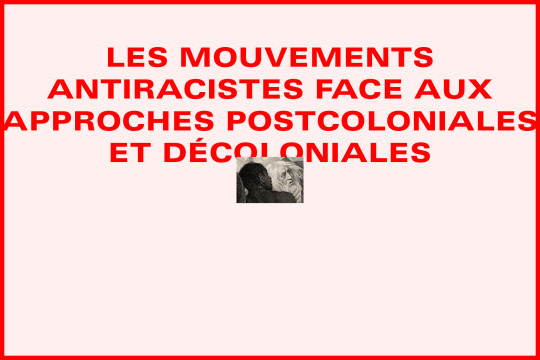
Les mouvements antiracistes face aux approches postcoloniales et décoloniales — François Héran – Collège de France VIDÉO >
https://www.college-de-france.fr/site/francois-heran/course-2020-12-11-10h30.htm
0 notes
Photo

Why George Orwell's Warning on 'Self-Censorship' Is More Relevant Than Ever
Just as George Orwell warned, governments don't have to be the censors for free speech and free expression to be fatally stifled. By Brad Polumbo Rule One: Speak your mind at your own peril. Rule Two: Never risk commissioning a story that goes against the narrative. Rule Three: Never believe an editor or publisher who urges you to go against the grain. Eventually, the publisher will cave to the mob, the editor will get fired or reassigned, and you’ll be hung out to dry.
The above is a quotation from George Orwell’s preface to Animal Farm, titled "The Freedom of the Press," where he discussed the chilling effect the Soviet Union’s influence had on global publishing and debate far beyond the reach of its official censorship laws.Wait, no it isn’t. The quote is actually an excerpt from the resignation letter of New York Times opinion editor and writer Bari Weiss, penned this week, where she blows the whistle on the hostility toward intellectual diversity that now reigns supreme at the country’s most prominent newspaper.A contrarian moderate but hardly right-wing in her politics, the journalist describes the outright harassment and cruelty she faced at the hands of her colleagues, to the point where she could no longer continue her work:
My own forays into Wrongthink have made me the subject of constant bullying by colleagues who disagree with my views. They have called me a Nazi and a racist; I have learned to brush off comments about how I’m ‘writing about the Jews again.’ Several colleagues perceived to be friendly with me were badgered by coworkers. My work and my character are openly demeaned on company-wide Slack channels where masthead editors regularly weigh in. There, some coworkers insist I need to be rooted out if this company is to be a truly ‘inclusive’ one, while others post ax emojis next to my name. Still other New York Times employees publicly smear me as a liar and a bigot on Twitter with no fear that harassing me will be met with appropriate action. They never are.
Weiss’s letter reminds us of the crucial warning Orwell made in his time: To preserve a free and open society, legal protections from government censorship, while crucial, are not nearly enough.
To see why, simply consider the fate that has met Weiss and so many others in recent memory who dared cross the modern thought police. Here are just a few of the countless examples of “cancel culture” in action:
— A museum curator in San Francisco resigned after facing a mob and petition for his removal simply because he stated that his museum would still collect art from white men. — A Palestinian immigrant and business owner had his lease canceled and restaurant boycotted after activists dug up his daughter’s old offensive social media posts from when she was a teenager. — A Hispanic construction worker was fired for making a supposedly “white supremacist” hand signal that for most people has always just meant “okay.” — A soccer player was pushed off the Los Angeles Galaxy roster because his wife posted something racist on Instagram. — The head opinion editor of the New York Times was fired and his colleague was demoted after they published an op-ed by a US senator arguing a widely held position and liberal colleagues claimed the words “put black lives in danger.’ — A random Boeing executive was recently mobbed and fired because he wrote an article 30 years ago arguing against having women serve in combat roles in the military. — A data analyst tweeted out the findings of a research paper (by a black scholar) about the ineffectiveness of protests and was fired after colleagues claimed their safety was threatened. — Led by progressives as prominent as New York Times columnist Paul Krugman, a woke mob tried to get a Chicago economist fired from his editorship of an economics journal for tweeting that embracing “Defund the Police” undercuts the Black Lives Matter movement’s chances of achieving real reform.
These are just a few examples of many. One important commonality to note is that none of these examples involve actual government censorship. Yet they still represent chilling crackdowns on free speech. As David French put it writing for The Dispatch, “Cruelty bullies employers into firing employees. Cruelty bullies employees into leaving even when they’re not fired. Cruelty raises the cost of speaking the truth as best you see it—until you find yourself choosing silence, mainly as a pain-avoidance mechanism.”
These recent observations echo what Orwell warned of decades ago:
Obviously it is not desirable that a government department should have any power of censorship... but the chief danger to freedom of thought and speech at this moment is not the direct interference of the [government] or any official body. If publishers and editors exert themselves to keep certain topics out of print, it is not because they are frightened of prosecution but because they are frightened of public opinion. In this country intellectual cowardice is the worst enemy a writer or journalist has to face, and that fact does not seem to me to have had the discussion it deserves.
Similarly, the British philosopher Bertrand Russell noted in a 1922 speech “It is clear that thought is not free if the professional of certain opinions makes it impossible to earn a living.”
Some might wonder why it’s really so important to protect speech and thought beyond the law. After all, if no one’s going to jail over it, how serious can the consequences really be?
While understandable as an impulse, this logic misses the point. Free and open speech is the only way a society can, through trial and error, get closer to the truth over time. It was abolitionist Frederick Douglas who described free speech as “the great moral renovator of society and government.” What he meant was that only the free flow of open speech can challenge existing orthodoxies and evolve society. From women’s suffrage to the civil rights movement, we never would have made so much progress on sexism and racism without the right to speak freely.
Silence enshrines the status quo. As John Stuart Mill put it:
If the opinion is right, they are deprived of the opportunity of exchanging error for truth: if wrong, they lose, what is almost as great a benefit, the clearer perception and livelier impression of truth, produced by its collision with error.
This great discovery process through free-flowing speech first and foremost requires a hands-off approach from the government, but it still cannot occur in a culture hostile to dissenting opinion and debate. When airing a differing view can get you mobbed or put your job in jeopardy, only society’s most powerful or those whose views align with the current orthodoxy will be able to speak openly without fear.
Orwell and Russell were right then, even if we’re only fully realizing it now. Self-censorship driven by culture, not government, erodes our collective discovery of truth all the same.
2 notes
·
View notes